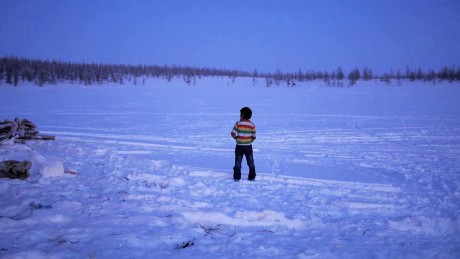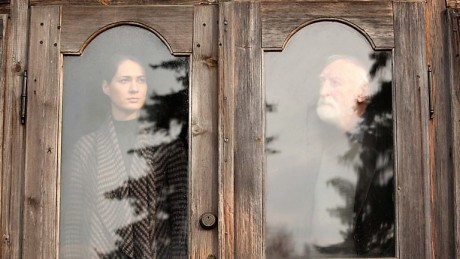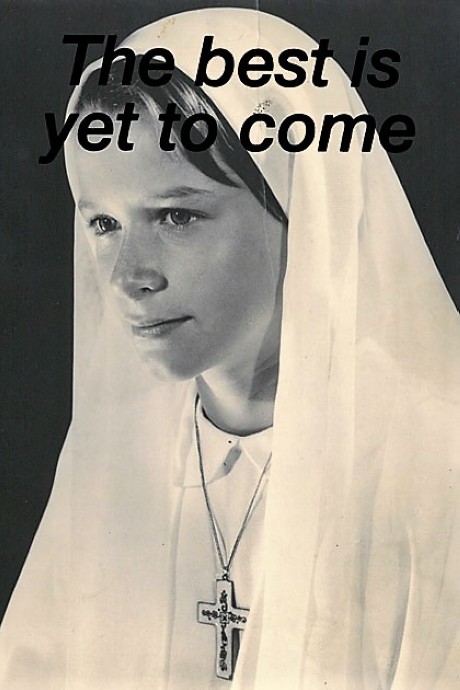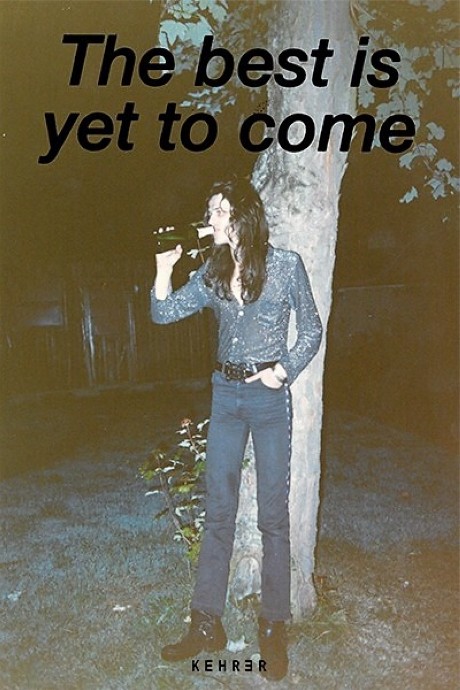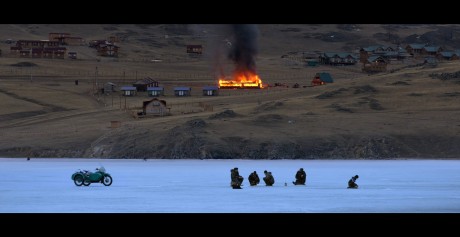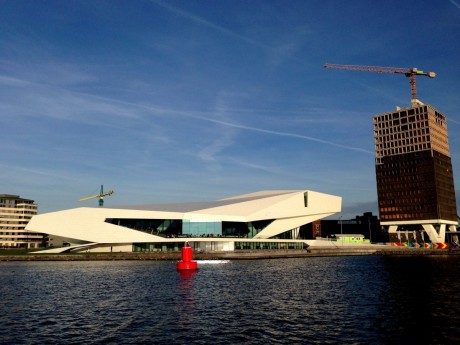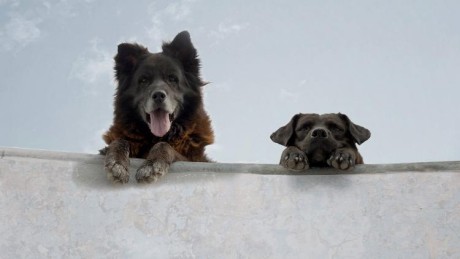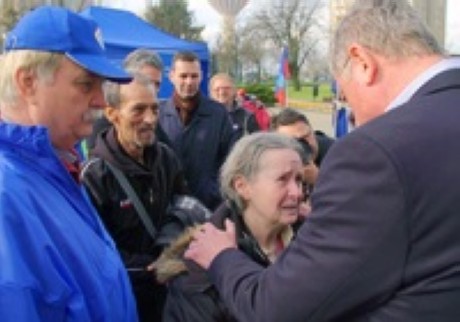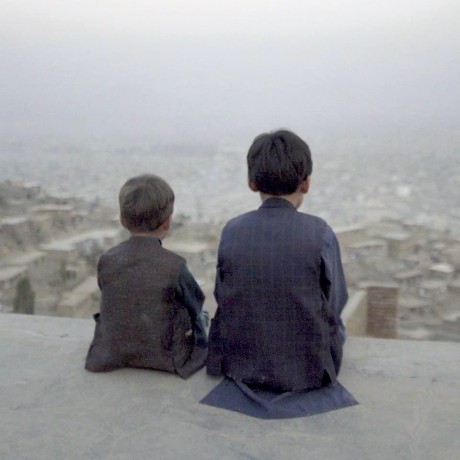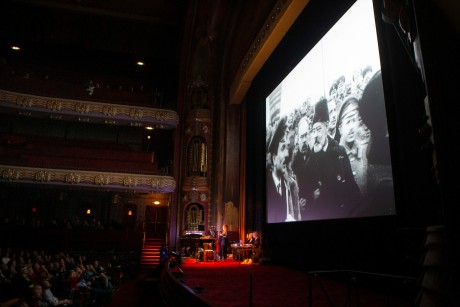IDFA Competition for Feature-Length Documentary
Anand Patwardhan won the IDFA Award for Best Feature-Length Documentary (€ 15.000) with Reason (India). The film is a broad-ranging examination of Indian society, where secular rationalists are hunted down as they attempt to stem the rising tide of religious and nationalist fundamentalism.
“The IDFA Award for Best Feature-Length Documentary is unanimously given to Reason by Anand Patwardhan for the epic storytelling of the rise of the far right in one of the most populated countries of this planet, the violence of religious and ultranationalist militias with the support of authorities and dominant medias, the dignity of resistance in multiple forms, often at life-cost, in a way that acknowledges the complexity of the situation but put it in a very understandable shape,” the jury reported.
In addition, the jury presented the IDFA Special Jury Award for Feature-Length Documentary (€ 2.500) to Los Reyes (Chile, Germany) by Bettina Perut and Iván Osnovikoff. In this almost fairy-tale-like film, the phenomenal, dreamlike camerawork centers almost entirely on the subtle interaction between two dogs, as they play with a ball, a stick, a stone, and each other.
“The IDFA Special Jury Award for Feature-Length Documentary goes to Los Reyes by Bettina Perut and Iván Osnivikoff (Chile, Germany) for the creative
and beautiful way it displaces the viewer gaze by associating a sensible look at non-human wonderful characters and the soundtrack that connects daily lives of animal and human stray dogs,” the jury said.
The jury members for the IDFA Competition for Feature-Length Documentary this year were Daniela Elstner, Jean-Michel Frodon, Tala Hadid, Mahamat-Saleh Haroun, and Alina Marazzi.
IDFA Competition for First Appearance
Sebastiano d’Ayala Valva won the IDFA Award for Best First Appearance (€ 10.000) for Giacinto Scelsi. The First Motion of the Immovable (France, Italy).
Aboozar Amini won the IDFA Special Jury Award for First Appearance, in memory of Peter Wintonick (€ 2.500) for Kabul, City in the Wind (Netherlands, Afghanistan, Japan, Germany). (PHOTO).
The jury members for the IDFA Competition for First Appearance this year were Catherine Dussart, Ross McElwee, Avi Mograbi, Jean Perret, and Adina Pintilie.
Made possible by the Friends of IDFA.
IDFA Competition for Mid-Length Documentary
The IDFA Award for Best Mid-Length Documentary (€ 10.000) was awarded to Andrei Kutsila for Summa (Poland, Belarus).
The IDFA Special Jury Award for Mid-Length Documentary (€ 2.500) went to In Touch(Poland, Iceland) by Pawel Ziemilski.
The jury members for the IDFA Competition for Mid-Length Documentary this year were Leah Giblin, Everardo Gonzalez, and Marc Isaacs.
IDFA DocLab Competition for Digital Storytelling
Ross Goodwin won the IDFA DocLab Award for Digital Storytelling (€ 5.000) for 1 the Road(United States).
The jury members for the IDFA DocLab Competition for Digital Storytelling this year were Dries Depoorter, Joël Ronez, and Mandy Rose.
IDFA DocLab Competition for Immersive Non-Fiction
The IDFA DocLab Award for Immersive Non-Fiction (€ 5,000) went to Eat | Tech | Kitchen(Netherlands, United States) by Klasien van de Zandschulp and Emilie Baltz.
The jury members for the IDFA DocLab Competition for Immersive Non-Fiction this year were Mads Damsbo, Ali Eslami, and Luna Maurer.
IDFA Competition for Dutch Documentary
The Beeld en Geluid IDFA Award for Dutch Documentary (€ 7.500) went to ‘Now something is slowly changing’ by mint film office.
Carin Goeijers received the IDFA Special Jury Award for Dutch Documentary (€ 2.500) forBut Now Is Perfect.
The jury members for the IDFA Competition for Dutch Documentary this year were Catherine Bizern, Eduardo Escorel, and Alisa Lebow.
Made possible by the Nederlands Instituut voor Beeld en Geluid.
IDFA Competition for Short Documentary
I Signed the Petition (United Kingdom, Germany, Switzerland) by Mahdi Fleifel won the IDFA Award for Best Short Documentary (€ 5.000).
The IDFA Special Jury Award for Short Documentary (€ 2.500) went to And What Is the Summer Saying (India) by Payal Kapadia.
The jury members for the IDFA Competition for Short Documentary this year were Catherine van Campen, Inadelso Cossa, and Haruka Hama.
IDFA Competition for Student Documentary
Beryl Magoko won the IDFA Award for Best Student Documentary (€ 5.000) for In Search…(Germany, Kenya).
The IDFA Special Jury Award for Student Documentary (€ 2.500) was presented to Dana Gelman for Backwards (Israel).
The jury members for the IDFA Competition for Student Documentary this year were Klaudiusz Chrostowski, Serra Ciliv, and Pauline Terreehorst.
IDFA Competition for Kids & Docs
The IDFA Award for Best Children’s Documentary (€ 5.000) went to Dancing for You(Poland) by Katarzyna Lesisz.
Martijn Blekendaal received the IDFA Special Jury Award for Children’s Documentary (€ 2.500) for The Man Who Looked Beyond the Horizon (the Netherlands).
The jury members for the IDFA Competition for Kids & Docs this year were Ingvil Giske, Pawel Lozinski, and Shamira Raphaëla.



